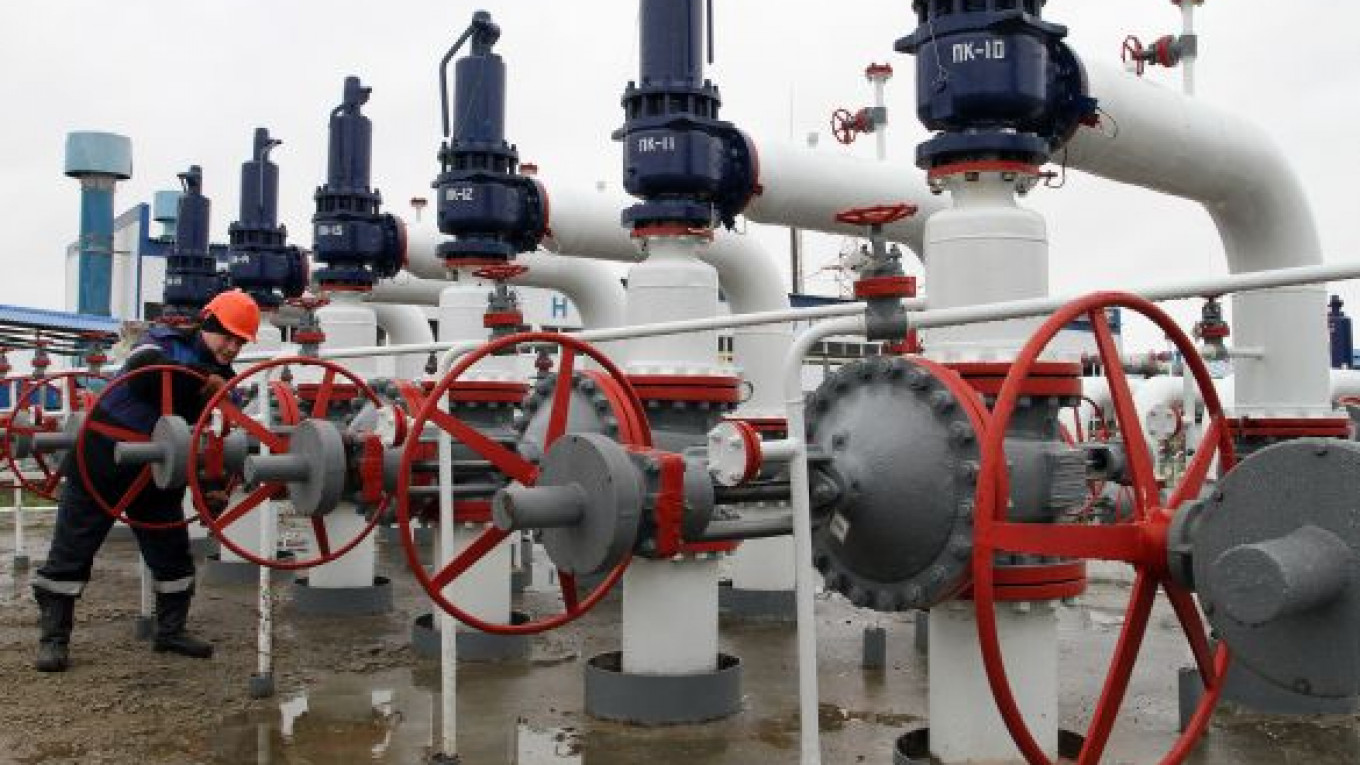Transneft, the state-owned pipeline company, hit back at critics Wednesday with a stinging personal attack on campaigning blogger Alexei Navalny and criticism of foreign governments that, it alleges, sought to disrupt an oil link to the Pacific Ocean.
“What’s all the hype about a Nazi?” Transneft spokesman Igor Dyomin told The Moscow Times, in a reference to Navalny and his expulsion from the Yabloko political party in 2007 for alleged nationalist activities. “We have enough problems in Russia without the Nazis.”
He added that although he couldn’t see any anti-Semitism in Navalny, “Nazism there is.”
In November, Navalny published a document from the Audit Chamber on his LiveJournal blog that he claimed proved Transneft’s guilt in the theft of $4 billion from the construction of the East Siberia-Pacific Ocean pipeline, or ESPO, the first stage of which was completed last year.
Transneft’s president Nikolai Tokarev also criticized Navalny.
“You know how they settle accounts in the countryside. They find the village idiot, give him three kopeks and he runs around all day saying what he was told. In the evening the whole village conducts a retrial,” he said on state-owned channel Rossia-24. “That’s exactly how Navalny acts.”
“That’s ridiculous,” Navalny said by e-mail. “They call me a village idiot, and then they call me a Nazi. I wonder if they are going to comment on the Transneft report that I’ve published? OK, I’m Nazi, but where is the stolen money?”
Tokarev said, however, that Navalny was just one part of the wider problem of an “information war” against Transneft. The ESPO is a “serious and powerful corridor to East Asia and the Pacific Ocean” he said. “Such Russian ambitions did not suit a lot of people.”
The 4,070-kilometer ESPO pipeline will be the world’s longest when its second stage is completed in 2013. At a cost of $25 billion it is the biggest infrastructure project of post-Soviet Russia.
“We have created serious political and economic advantages for Russia,” Tokarev said.
He claimed that several foreign governments aimed to stall the ESPO, held meetings with social and ecological groups opposed to the construction of the ESPO in the far eastern region of Sakha and then financed those groups to obstruct Transneft’s work.
On his blog, Navalny wrote that Tokarev’s words were typical of the “we steal, we thieve and then we accuse all the enemies of Russia” mentality.
Dyomin declined to identify which foreign governments or social organizations Tokarev was talking about. “We consider it all in the past because the pipeline has now been built,” he said.
Then-President Vladimir Putin ordered the rerouting of the ESPO away from Lake Baikal in 2006. As a result, the pipeline was built through Sakha, leading to conflict between the company and nongovernmental organizations in the area.
Valentina Dmitriyeva, a representative of the coalition Our House is Yakutia, an informal grouping of registered and nonregistered organizations that campaigned against the ESPO, said by telephone that the “pronouncements of the head of Transneft do not correspond to reality.”
She cited the case of the protests against the construction of the ESPO’s crossing of the Lena River in summer 2008 which, she said, far from being funded from abroad actually received a presidential grant for 100,000 rubles ($3,400) from the Public Chamber.
Transneft did not use the under-river tunnel for the ESPO crossing of the Lena that protestors demanded, but reserve pipelines currently under construction will employ this technology.
Alexei Knizhnikov, head of WWF Russia’s oil and gas environment policy, said the protests in Sakha were not opposed to the ESPO on principal, but were just “trying to force Transneft to follow best practice.”
He added that it was possible that some international donors financed NGO activity in Sakha but that he couldn’t imagine in what country’s interest it would be to block pipeline construction in eastern Russia.
“China is very involved in [the ESPO] and the U.S. and Japan receive oil from it,” he said. “Everybody gets some kind of hydrocarbons from Russia.”
A Message from The Moscow Times:
Dear readers,
We are facing unprecedented challenges. Russia's Prosecutor General's Office has designated The Moscow Times as an "undesirable" organization, criminalizing our work and putting our staff at risk of prosecution. This follows our earlier unjust labeling as a "foreign agent."
These actions are direct attempts to silence independent journalism in Russia. The authorities claim our work "discredits the decisions of the Russian leadership." We see things differently: we strive to provide accurate, unbiased reporting on Russia.
We, the journalists of The Moscow Times, refuse to be silenced. But to continue our work, we need your help.
Your support, no matter how small, makes a world of difference. If you can, please support us monthly starting from just $2. It's quick to set up, and every contribution makes a significant impact.
By supporting The Moscow Times, you're defending open, independent journalism in the face of repression. Thank you for standing with us.
Remind me later.







